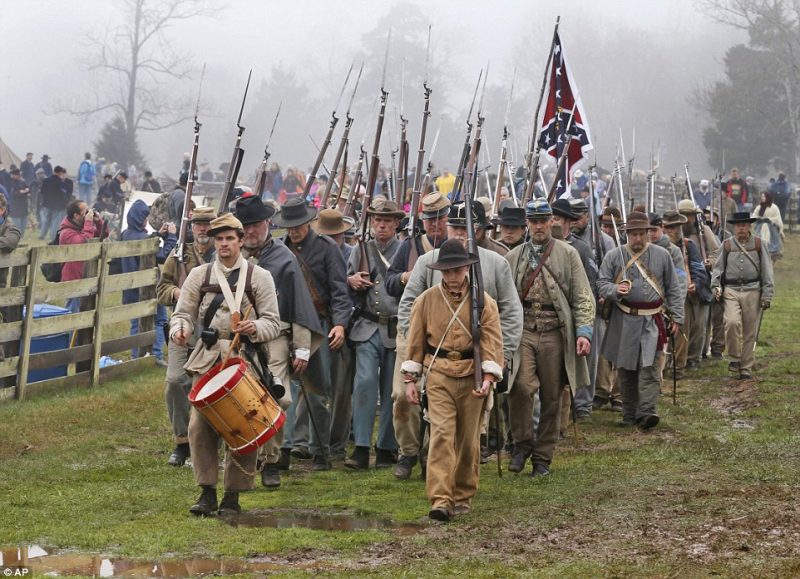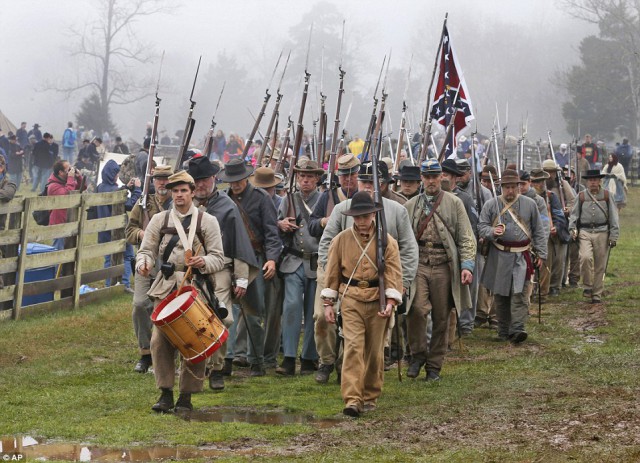It was the 9th of April 1865, 150 years ago, when the Confederate commander, Robert E. Lee, surrendered to the Union, after fighting 4 years of bloody civil war. Lee had realized that fighting any further would be a lost cause, especially after losing the capital of the Confederacy, Richmond, to the Union Army. But there were still some lower-ranked Confederate commanders who were determined to carry on fighting against the Union.
Captain John Jackson Dickison, a wealthy owner of a cotton plantation, refused to give up without a fight, and carried on fighting even after Lee’s surrender. During the war, he conducted a number of successful guerrilla operations against the Union troops. Although he carried on fighting after the fall of the Confederacy, he too had to surrender, not long after Lee had surrendered his sword to the Union.
John Jackson Dickison operated in and around Pioneer Cracker Village, and recently a re-enactment of his surrender was held at the Silver River Museum in the Village. The re-enactors marched out of the woods, led by Dickison himself; he then offered his sword to the Union officer as a gesture of an official surrender. Just like the actual event, the re-enactors did surrender but not before some bitter arguments and name calling.
Abraham Lincoln, who ruled the Union throughout the war, always referred to the civil war as a transition period for a better and more tolerant America. His opposition to slavery and oppression made him a symbol of liberty and freedom for generations to come. But that transition left a mountain of dead people and streams of blood behind it. Both sides thought their war was justified, and in the course of four bloody years, hundreds of thousands of Americans perished, The Ledger.com reports.
Lincoln’s determination to abolish slavery from American society invited the wrath of the States in the South. They formed a Confederate unit, announcing secession from the Union and refusing to give up on the ‘tradition’ of slavery. The Union leaders were convinced that the dream of a better nation could not be achieved while carrying the burden of slavery on their shoulders. Lincoln had made it a personal mission to abolish slavery once and for all from American society.
The American Civil War is studied and looked upon in a way that may seem strange from an outsider’s perspective. After the surrender of the Confederacy, the Union did not adhere to any revenge towards the Confederate leaders. John Jackson Dickison was released after a few years; he lived a peaceful life and died just after the dawn of the 20th century, in 1902.

